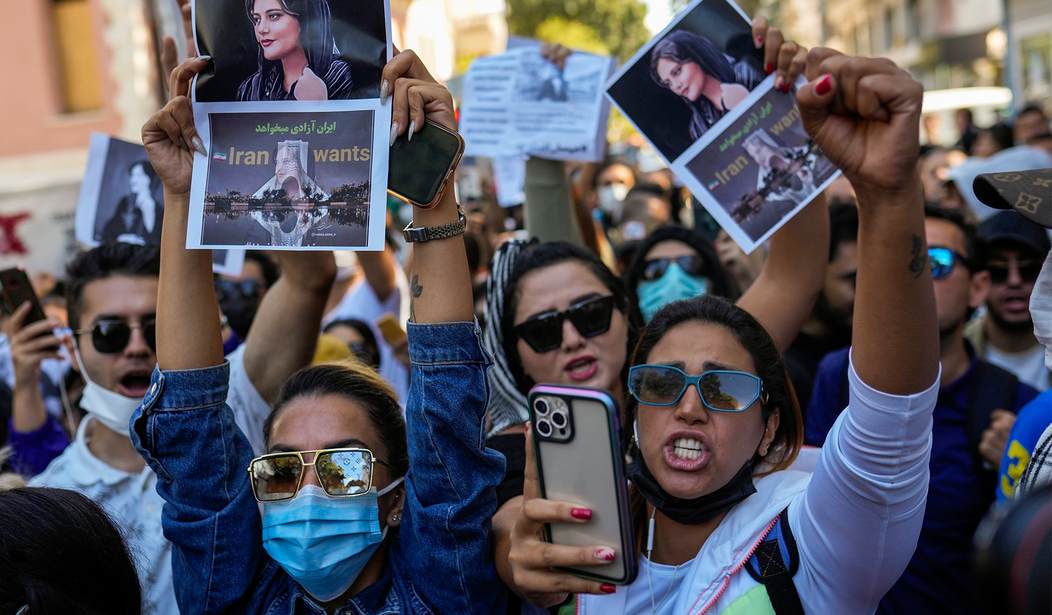At 12:01 AM on September 28, sanctions against Iran — suspended after the 2015 "Joint Comprehensive Plan of Action" (JCPOA) agreement, which put restrictions on Iran's nuclear program — were reimposed.
This "snapback" of severe UN sanctions that forced Iran to come to the negotiating table in 2012 is about eight years overdue and was only possible because of the joint U.S.-Israel strike last June on Tehran's nuclear enrichment facilities, which "obliterated" the Iranian program.
Iran has been violating the JCPOA since day one, as it chose to interpret elements of the deal far differently than Barack Obama's administration did. That interpretation allowed Iran to build a new generation of highly advanced centrifuge machines capable of enriching uranium at a much faster rate.
The "P5+1 nations" (China, France, Germany, Russia, the United Kingdom, and the United States—plus the European Union) say Tehran has violated “the near entirety of its JCPOA commitments.” The Europeans felt they had no choice.
The renewed sanctions include a "UN conventional arms embargo; restrictions on activities related to ballistic missiles capable of delivering nuclear weapons; a ban on enriching and reprocessing uranium; and a global asset freeze and travel bans on Iranian individuals and entities," according to Radio Free Europe/Radio Liberty (RFL/RL). There are going to be new sanctions on Iran's crumbling oil industry, as well as its shipping, financial, and banking sectors.
The asset freeze is what terrifies Tehran and the clerical-fascist leadership that has been quarreling among themselves over what to do.
Reuters reports, "Rifts are widening within Iran’s ruling elite over how to navigate the crisis — some push for a tougher line while others resist, fearing it could trigger the Islamic Republic's collapse."
Yes, it's that serious.
A perfect storm is forming over the Iranian state, with always restless minorities, including the Kurds, Baluchs, Turkmen, and Arabs, actively fighting low-intensity regional conflicts. The population, especially women, has become more militant. And the great mass of Iranians who have supported the mullahs since the 1979 revolution are incredibly dissatisfied with the high unemployment rate, high inflation rate, and general economic malaise that makes everyday life harder and harder.
"We already struggle to make ends meet. More sanctions means more economic pressure. How are we going to survive?," Shima, 36, a mother of two, told Reuters from Tehran by telephone.
The clerical leadership is increasingly concerned that mounting public anger over economic hardships could erupt into mass protests that would "further harm its position on the international stage," the second official said.
Iran’s official inflation rate is around 40%, and some estimate it is over 50%. Iranian media in recent months have reported a significant rise in food prices and costs of housing and utilities, driven by the rial currency's steep fall and soaring raw material costs.
Iran has staved off economic collapse largely thanks to China, the main buyer of its oil and one of the few nations still trading with Tehran despite sanctions reimposed since 2018 when then-president Trump ditched Tehran's 2015 nuclear pact.
“The impact of snapback sanctions is already being felt in Iran, with the rial continuing to weaken against the dollar amid worsening pessimism in the business community,” a senior analyst at the New York-based Eurasia Group, Gregory Brew, told RFE/RL.
Is it possible we're seeing the final days of the Iranian clerical-fascist regime?
Iranian activist Masih Alinejad, now living in the U.S and once a target of Iranian assassins, thinks the inherent weaknesses and contradictions of the Islamic regime will be its downfall.
Surreal: Iran’s regime covered the legs of Finland & Sweden’s foreign ministers on State TV, afraid their men would be “tempted.” Can we all agree: when a regime needs to hide women’s ankles to keep men from ‘sinning,’ they’re not a government, they’re a frat house of horny… pic.twitter.com/bzP4boqmIH
— Masih Alinejad 🏳️ (@AlinejadMasih) September 26, 2025
Ladies, let’s raise your voices, raise your skirts, raise hell! Apparently Iran’s regime can launch missiles, but they tremble at women’s legs. That’s why they blur us on TV. And they put female singers in jail.
— Masih Alinejad 🏳️ (@AlinejadMasih) September 27, 2025
They kill prisoners, but they panic at our ankle.
💃🏻 https://t.co/JgCxVeRNTI pic.twitter.com/p4Ph9xAZ4S
The government is still supported by the Revolutionary Guard Corps (IRGC), whose fanaticism is far beyond anything the Shah's police and army demonstrated when confronted by protesters in 1979. They refused to shoot down their fellow countrymen.
I don't think the Revolutionary Guards would hesitate.










